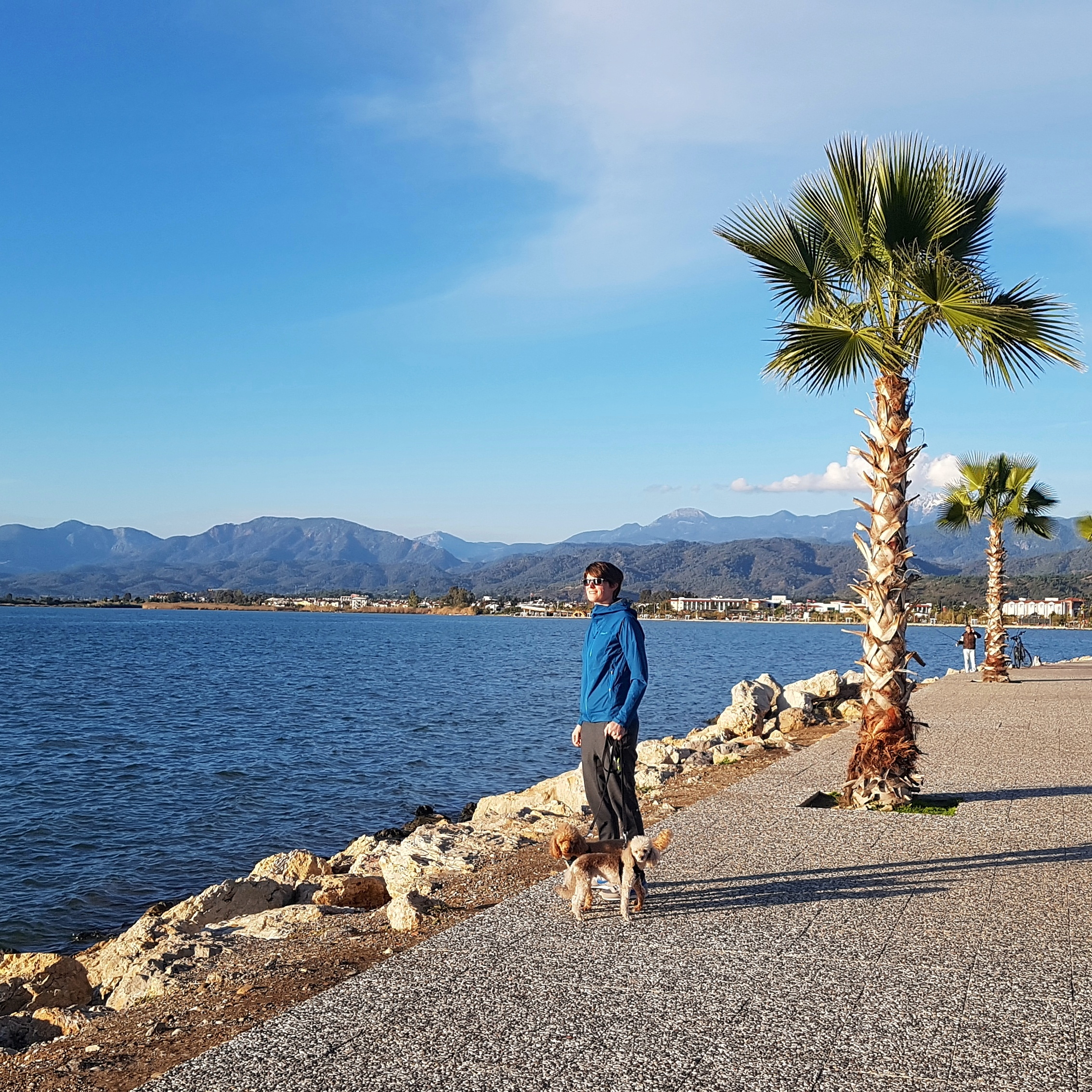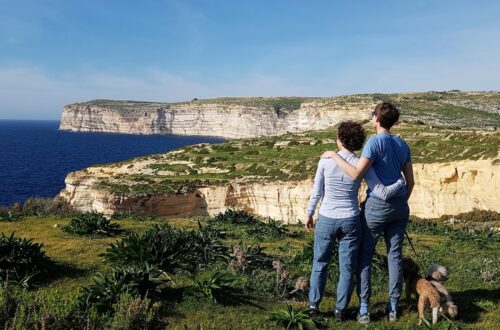
How To Manage Risk In Early Retirement
Plus How We’re Dealing With Crashing Stock Market During Our Retirement
We’ve gone and done the one thing that every retiree fears. We retired just months before a significant market crash with a recession now looming on the horizon.
We became financially independent and retired early just six months ago. We set off for Europe with an exciting plan to slowly tour low-cost countries. Since then, we’ve seen a global pandemic with a huge impact on the economy. Our plans for slow traveling across Europe were cut short and we ended up on a rescue flight from Italy to Canada. We now find ourselves in Toronto – definitely not a low cost destination – and scanning for news for any hope that global borders will reopen.
We are experiencing first hand what happens when an early retirement doesn’t go to plan. Are we concerned about the global situation and how it affects our future as slow travellers? Of course. But are we worried about our finances as new retirees facing a potential recession? At this time, we’re not, because we’ve put a solid risk management plan in place.
Today we’re sharing tips for managing financial risk during early retirement. At the end we’ll discuss our own approach and how we’re dealing with the current market downturn. We do want to flag that we are not financial advisors; we’ve just put a lot of research into this topic and wanted to share our own thoughts on the subject.
The right amount of savings
Risk management starts even before you retire by coming up with the right amount of savings to support your expenses for the rest of your life. One rule of thumb that many people follow is to save up 25X your expected annual expenses for your retirement lifestyle.
To us, this is really the bare minimum and, in fact, we personally follow a much more conservative approach and recommend saving up to 33X or more. The amount should be large enough to protect you in case of unexpected events such as a change in life circumstances, prolonged market downturns, or a rise in health care costs.
Diversifying investments
Another important consideration for risk management is to consider how your savings have been invested and how diversified your investments are. What proportion are in equities vs bonds vs real estate or other types of investments?
Of course, some types of investments are more volatile than others; just think about the recent market crash. So consider whether you are diversified enough in case one part of your portfolio is impacted. For example, if you are heavily invested in equities, a market downturn can have a huge impact on your portfolio. Similarly if you have all your money in a single property that you bought at the peak of the housing bubble, that comes with its own risks as well
The key takeaway is to diversify and to allocate based on your own risk tolerance. The diversification should be across investment types — such as equities, fixed income and real estate — but also within asset classes. For example, if you’re looking to diversify your equities, you can consider a global index fund where you hold a slice of the overall global market, rather than holding a handful of individual stocks.
Protecting cash flow
Whatever investment strategy is right for you, you still need a cash flow to meet living expenses on a day-to-day basis during your retirement. This can come from various sources which might include
- Regular inflows from pension, dividends, or fixed income investments
- Other cash flow sources, which could be active or passive. This might include rental income or even side hustle income, since retiring early doesn’t necessarily mean you stop all earning
- Or if you are invested 100% in equities you would need to gradually sell these off to fund your living expenses
If your cash flow is disrupted for some reason, whether it’s a market downturn or a tenant behind on rent, it is a good idea to have some cash set aside to get you through that period — essentially to protect your cash flow.
This cash should be enough to cover your needs for the amount of time that makes you feel comfortable, which could be one year or as much as three years. This is particularly important if your investments have poor returns over a number of years; you will still have your living expenses covered without needing to sell off investments while they are down.
Emergency fund
So your cash flow covers your expected expenses but what about unexpected expenses? These are things that are above and beyond what you would normally expect and budget for. This is where an emergency fund comes in. The amount of cash to keep on hand is very personal — It could be one month of expenses at a minimum or three to six months.
Scenario mapping
Everything that we’ve mentioned — diversifying investments, protecting cash flow, an emergency fund — are tools for managing risk. Equally important is to have a plan so that you’re prepared to respond to different scenarios that might arise.
We recommend sitting down with your partner or just yourself if you’re single and coming up with a plan for a variety of scenarios. Then write it down so that you’re committed. Potential scenarios you may face in retirement could include:
- A market downturn
- Unexpected illness
- A change in family circumstances
For each scenario that seems relevant to your life, consider how you will respond in terms of financial management. It’s important to remember that you have a range of levers available such as:
- Reducing costs by living more frugally
- Change of location, whether within your home country or by relocating to a lower cost country
- Returning to work, part or full time, until markets recover
You can include these and others that are relevant as you come up with your contingency plans.
Our approach
We wanted to share how we are personally dealing with the current economic crisis and how it’s affecting our early retirement plans. As we’ve mentioned, when planning our retirement, we were quite conservative. So we didn’t just save up 25X our expected annual expenses; we saved much more so that we could feel confident in our financial future.
Additionally, our investments are a mix of equities and fixed income. For equities we hold a low cost global index fund, so that gives us a slice of the global market. For fixed income, we invest in syndicated mortgages that provide us with regular interest payments. These are what fund our day to day living expenses.
We’re finding in the current economic situation that the steady payments from our fixed income portion is quite reassuring and helps smooth the ride while our equities recover.
We also have one year’s worth of expenses in a high rate savings account. This can act as a buffer in case there are any disruptions to our cash flow.
We encountered a lot of unexpected expenses when we had to cut our European travels short and fly back to Canada during the current crisis. Fortunately we had accounted for the unexpected in our emergency fund and were able to manage the costs.
Generally, our most important lever for managing risk is managing our costs by traveling to low cost countries. During this time when we are unable to travel internationally, we will be looking to do some geographic arbitrage within Canada, which means spending some time in lower cost cities.
If this topic of managing risk was helpful to you, we suggest reviewing this video that outlines how to come up with the right amount of savings to fund your retirement.
If you’re interested in financial independence and early retirement, click here to subscribe to our YouTube channel.





5 Comments
Pingback:
Pingback:
Pingback:
Pingback:
Pingback: